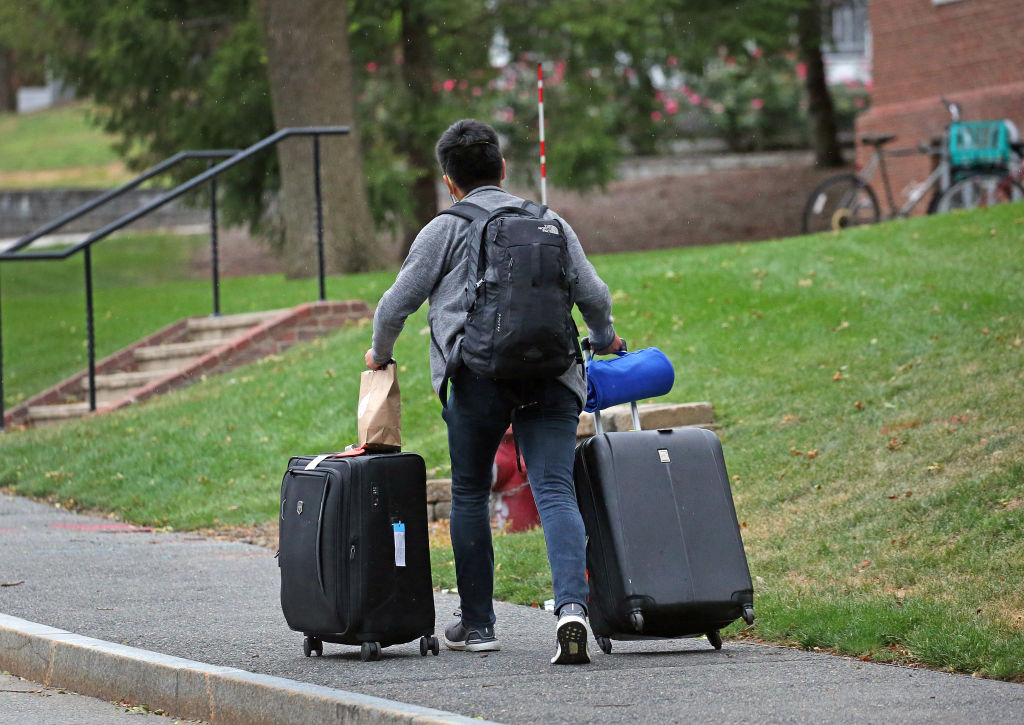When Lex Zhao was a first-year student at the University of Chicago Booth School of Business, he set out to calculate “The Real Cost of a[n] MBA,” which he published in an article on Medium in June 2016. Zhao started by building a budget based on numbers provided by Booth. Relying on reports that school budgets are often 10% to 20% lower than what students actually spend, he bumped his figures up by 15% and then tracked his monthly expenses.
Today, many top-ranked MBA programs have a total price tag well exceeding $200,000, so adding a cushion for the hidden expenses while in school could mean budgeting an extra $20,000 to $40,000, at least. For Zhao, his actual expenses were “pretty close” to that revised budget he created, except in two categories: personal expenses and travel. Together, these two accounted for $15,000 in his nine-month budget.
Learn more: How much does an MBA cost?
“I didn’t come to Booth with a lot of money,” reflects Zhao, who now is a Boston-based partner in early-stage venture capital firm One Way Ventures. “Once you’re in the program, you come to realize that a lot of classmates have a lot of money, from career savings or family or both.”
Like Zhao, other MBA grads have found surprising expenses in their programs—even ones they might not want their family or employers to know about. Here’s what several grads told us.
The intrinsic value of shared experiences
His limited resources didn’t stop Zhao from participating in several student trips, starting with a pre–first semester weeklong jaunt to Argentina, where, he says, he met the dozen or so classmates who would become his closest friends throughout his MBA years and beyond. Over spring break, he signed up for another Booth trek, to Colombia—and these trips were 100% worthwhile, he maintains.
“At the end of the day, it’s about shared experiences, and these trips create strong enduring relationships,” Zhao says, adding that those students who passed on joining trips had “deep regrets.”
“I would say the travel was one of the primary value propositions offered by our program,” Zhou asserts. “Anyone can pick up a text book or explore business theory online. These trips offer a ton of value you can’t get anywhere else.”
And travel is unique to the graduate management experience, he points out. Law and medical students don’t have the same opportunities, he says. “They have to make do with socializing in the library.”
Travel: Work versus play
One pre-pandemic estimate of the cost of MBA travel comes from data collected by WeTravel, a platform for trip organizers founded in 2015 by three Berkeley Haas grads. In 2019, they calculated that wanderlusting MBAs spent nearly $21,300 to pay for 13 trips over the course of two years, including breaks and six long weekend jaunts.
Yet allowances for travel are a glaring omission in school-publicized nine-month budgets, at least among those identified as Fortune’s top 10 full-time MBA programs. Indeed just one, Columbia Business School, extensively footnotes its numbers to caution that “students may incur additional costs not included in the budget,” identifying school-approved tours, cluster travel, treks, recruiting trips, and other job-search expenses.
Other budget busters footnoted by Columbia include relocation and moving expenses, medical costs not covered by insurance, club dues, travel (again!), conferences, summer expenses before, during, and after the school year, and consumer debt. Together, these can add up to thousands of dollars.
In addition to WeTravel, several travel agencies or facilitating firms cater to academic, “extracurricular” travel and a third category of “corporate treks,” which are recruitment trips where participants are escorted to several companies to hobnob. A finance group will head to New York City; a marketing-themed itinerary brings students to Chicago, and tech groups, of course, tour Silicon Valley.
Often enough, the lines between “work” and “play” travel are blurred. On a recent four-day, student-organized trip to Mexico set up for more than 100 students and their “significant others,” one participant found the trip was well organized but had a stronger emphasis on partying and not so much on cultural exploration or learning—as she had expected. While group rates offer a price break, these trips aren’t cheap. This Mexico trip cost $655 for a three-night stay, airfare was not included, and students were asked to commit in early August.
Club fees: Pricey and essential
Not at all in the same five-figure league as travel expenses, but still significantly expensive, several recent MBAs mentioned an unanticipated cost was club dues. These grads describe club dues of $100 and up, which could total $1,000 or more depending on the number of groups a student joins. Joining clubs is typically viewed as a necessary expense as it helps students learn how to make themselves more attractive to recruiters and offers valuable networking opportunities.
A current student describes these expenses as “crazy” because so many club activities are actually more useful than classwork, and a requirement for recruitment in some industries, but it isn’t embedded in tuition, she says.
The parking perk
MBA aspirants headed to schools in urban environments may find the cost of parking will burn a big hole in their budgets. Five of the top 10 schools in Fortune’s ranking include a “transportation” line in their accounting: Stanford ($969), Booth ($1,944) Kellogg ($1,329, annotated as “travel”), NYU Stern ($1,132), and MIT Sloan ($2,250). Other schools include this expense in “personal costs.” Yet, on urban campuses not well served by public transportation, parking costs can be painful.
Back when he matriculated at UCLA Anderson, a lottery was held to allocate the limited on-campus parking spaces, recalls David Whelan, who graduated in 2002. Students who weren’t able to secure a place were at the mercy of finding on-street parking and subjected to stiff parking ticket fines. “But then, if you won a spot through the lottery, the school rubbed salt in the wound with a ridiculous—it seemed to me at the time—quarterly parking fee,” Whelan says.
The lottery is long gone, but parking fees are still stiff: For 2021–22, it’s $374 each semester.
Exploding personal costs
Parking may not be a problem up in Hanover, N.H., but at least one 2019 graduate of Dartmouth College’s Tuck School of Business reports another kick to his wallet was lifestyle costs, running well over the school’s “moderate” budget. He confesses that he ate out three meals a day and went out for dinner or drinks with classmates four nights a week on average—and insists he wasn’t an anomaly. His days were long and packed with school-related activities, and he found there was little to no time to shop or cook, hence it was easy to blow through what was allocated to the miscellaneous living expense bucket.
After travel and eating-out costs, this same Tuck grad (who requested anonymity so his parents won’t find out what he spent), identifies recruiting costs as another budget-buster. He says he spent a few thousand dollars visiting companies that weren’t covering these costs.
And anyone aspiring to change industries could also face a wardrobe upgrade, he notes. Transitioning from an engineering or tech career to investment banking could set you back a couple of unanticipated thousand dollars, as well.
Other grads offer a smattering of tales of sticker shock they experienced from the purchase of unbudgeted items early in their MBA matriculation—from the cost of a pair of Ray-Ban Wayfarer sunglasses to the purchase of an HP-12C calculator the night before an accounting exam. (I confess that was me, and I flubbed the test. Reverse Polish notation did not come readily to this English-as-a-first-language speaker.)
Finally, there’s a cautionary tale from an MBA grad who thought she might save money by outsmarting the system and skipping health insurance in the gap between leaving her job and starting school. “Long story short,” she relays, “I got injured and needed to have knee surgery. Forgoing health insurance was very, very costly.”
See how the schools you’re considering fared in Fortune’s rankings of the best part-time MBA programs.





